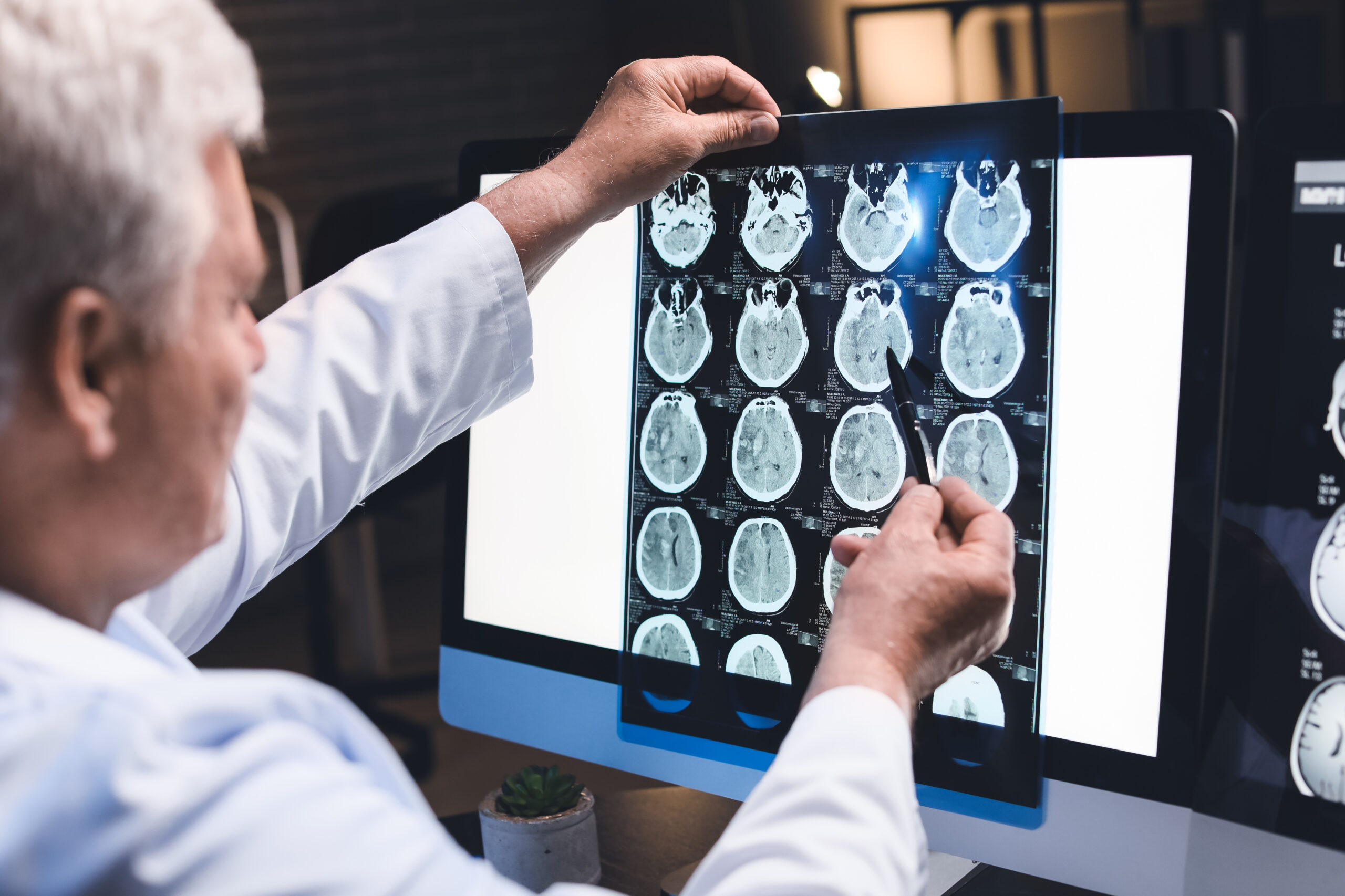
What is a Concussion?
- A concussion is a type of traumatic brain injury that usually results from a blow to the head. It can also occur with violent shaking and movement of the head and body. You do not have to lose consciousness to get a concussion or develop post-concussive syndrome.
What is Post-Concussion Syndrome?
- Post-concussion syndrome occurs when concussion symptoms last beyond the expected recovery period after the initial injury. The usual recovery period ranges from weeks to months. The risk of developing post-concussive syndrome is not associated with the severity of the injury.
Concussion Symptoms
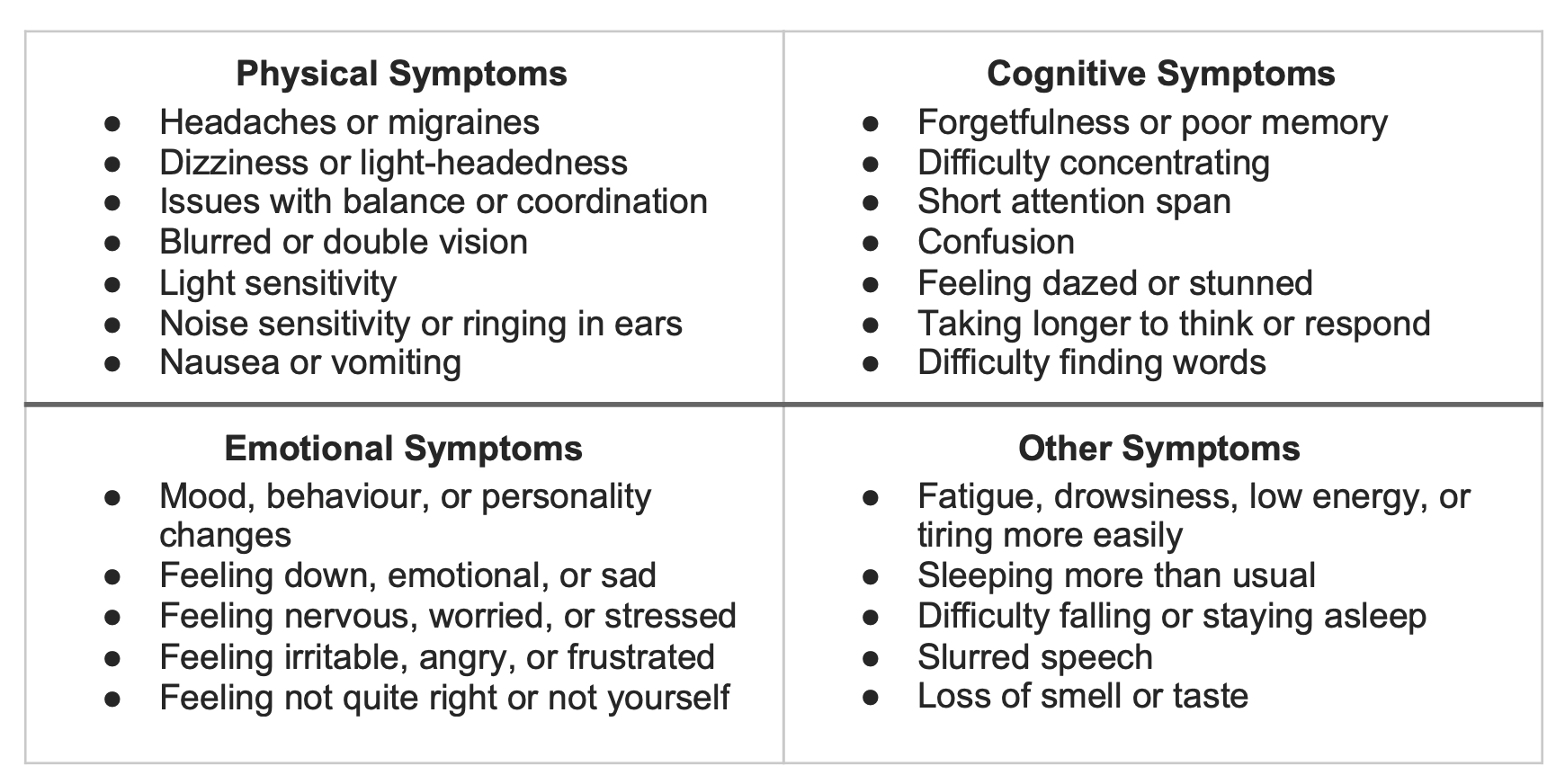
Managing Concussion Symptoms
Headaches and Migraines

- Go to a quiet place or go outside for fresh air. Lying down and turning off the lights may also help.
- Put a cold or hot pack on your neck or head.
- Do deep breathing and relaxation exercises (e.g., progressive muscle relaxation).
- Get adequate sleep. Not enough sleep or too much sleep can exacerbate headaches.
- Eat regular meals. Avoid certain foods that are known to trigger headaches (e.g. aged cheeses, chocolate, citrus, processed food, wine, caffeine and food with additives like MSG and nitrates).
- Drink sufficient liquids and avoid caffeinated and carbonated beverages.
- Do some light exercise. Talk to your doctor about when you should begin light exercise.
- Keep a headache diary. Keep track of when your headaches happen, what you were doing, the level of pain, and when the headaches subside. This can help you learn what makes your headache better or worse and how to avoid triggers.
- Talk to your doctor about which medication is right for you to manage your headaches. Follow your doctor’s instructions on how to take your medication.
Light Sensitivity and Vision Problems
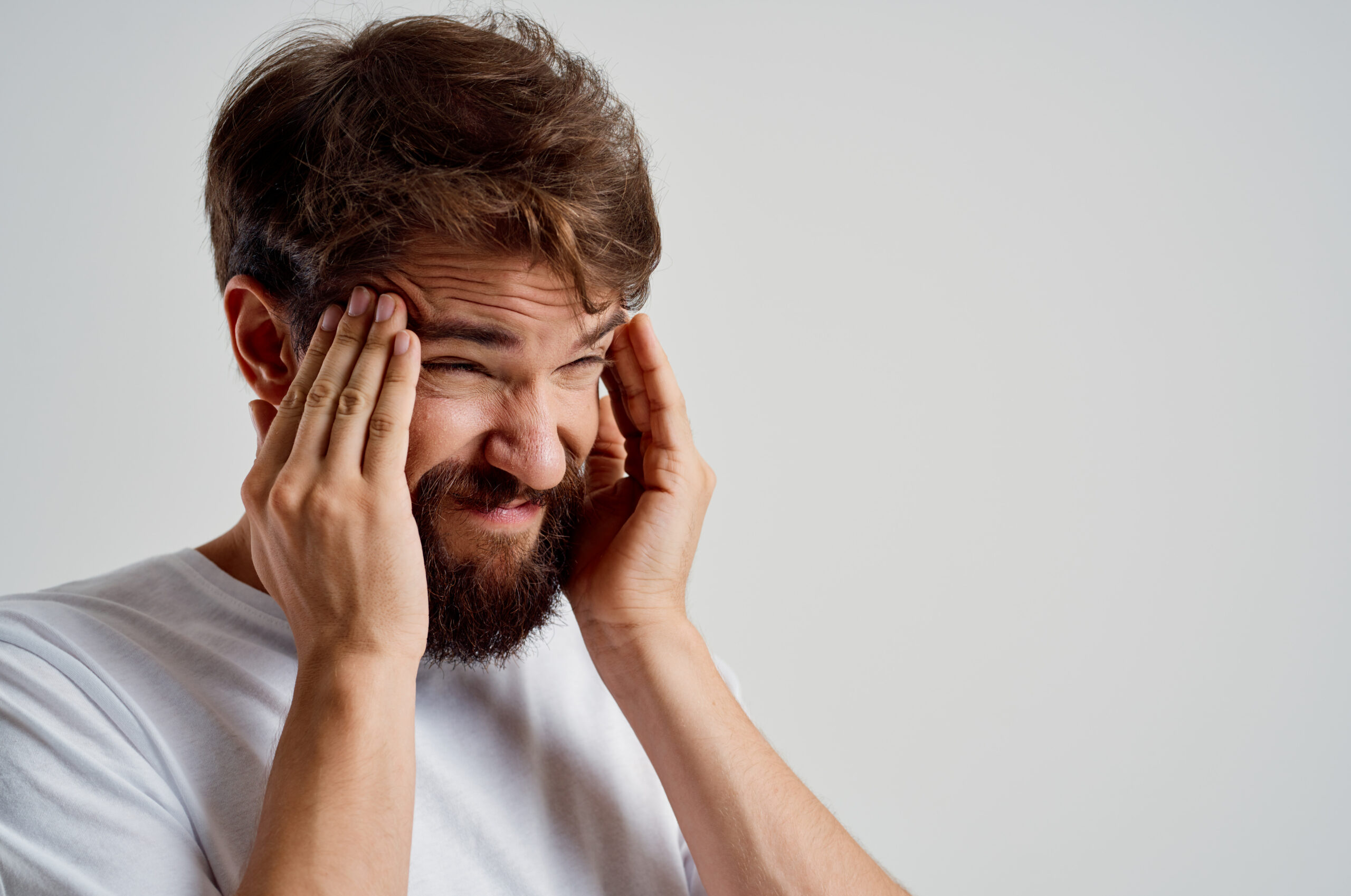
- Wear photophobia glasses (e.g., TheraSpecs) to protect you from pain brought on by fluorescent light, blue light, bright sunlight, harsh reflective glare, and computer, television, or phone screens.
- Wear polarized sunglasses outside.
- Use lightbulbs that emit low levels of blue light, such as incandescent, halogen, or warm white LED bulbs. Avoid fluorescent and cool white LED bulbs, as these emit high levels of blue light.
- Reduce mobile or computer screen use.
- Install blue light reducing apps for your phone or computer.
- Make sure there is no reflection on your computer screen from a lamp or outside light. You can use anti-glare monitor covers to reduce glare.
- Try placing a see-through transparent colour tinted sheet over white paper when reading. This helps reduce visual stress and glare and can help you see the page more clearly.
- Use larger print fonts when reading. Try putting a blank piece of paper or ruler under the line you are reading to help your eyes to move smoothly from one line to the next.
- Fatigue can make vision problems worse. Take breaks and give your eyes time to rest.
Dizziness and Balance Issues

- Slow down your movements. Take your time getting out of bed, bending, and turning your head.
- Stay active. Avoiding activity because you are afraid that you will lose your balance can lead to inactivity and anxiety, which can get in the way of getting back to typical everyday activities. Go at your own pace and make sure there is something for you to hold onto if you need extra support.
- Prevent falls. Below are several things you can do to decrease your risk for falls:
- Make sure your living area is uncluttered. Keep a clear path to the places you need to go. o Remove rugs or other objects that may be a tripping hazard.
- Use a non-slip mat or shower chair when bathing, as steam can increase dizziness.
- Place sturdy furniture close by so that if you feel a change in your balance you have something to grab onto or somewhere to sit.
- Keep items that you use regularly within reach so that you don’t have to climb or bend.
- Do not climb ladders or work from heights if you feel unsteady or dizzy.
- Use railings to go up or down the stairs. Use your cane, walker, or wheelchair if you need it.
- Make sure you have enough light to see in each room and on stairs.
Noise Sensitivity and Tinnitus
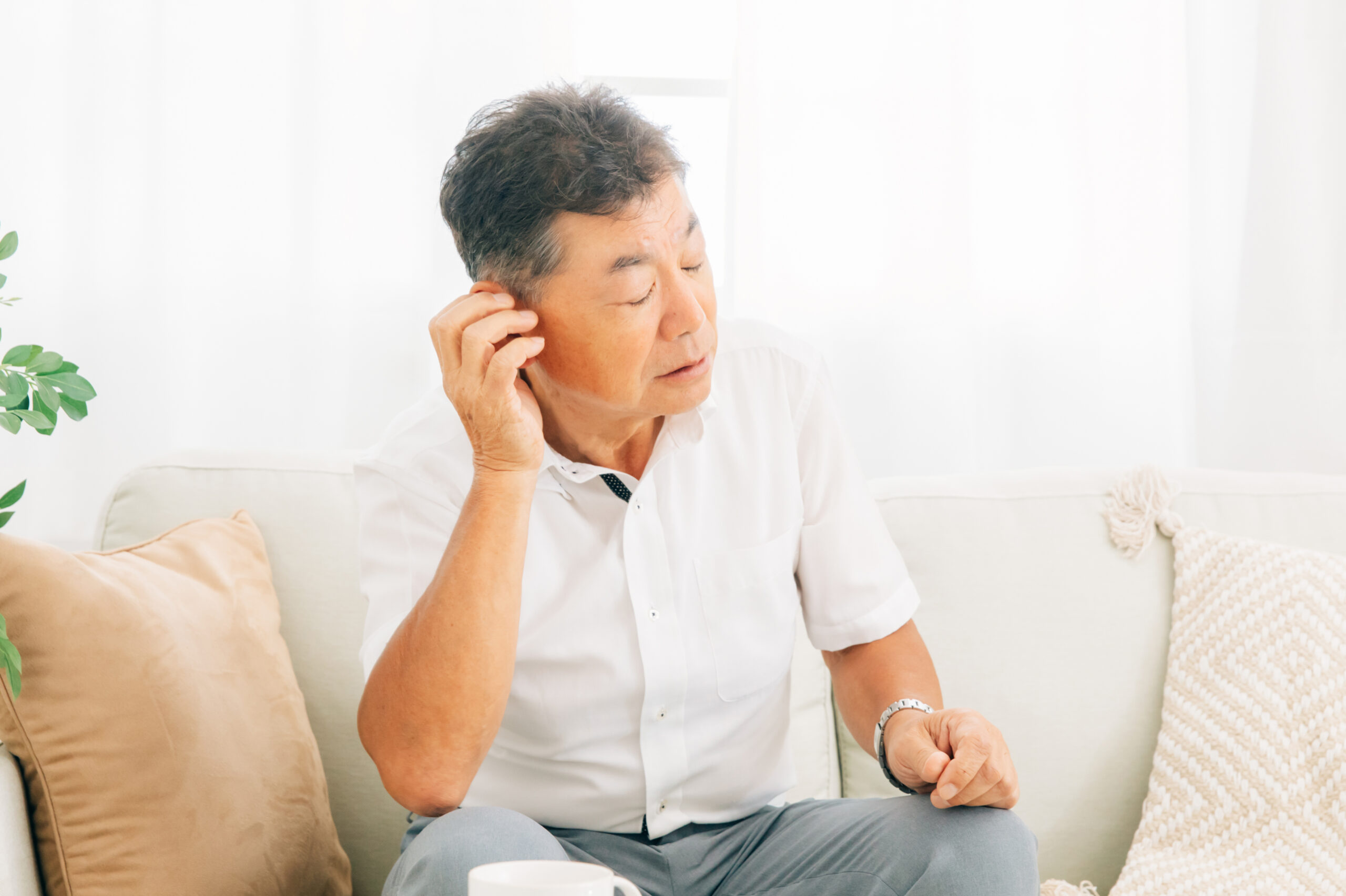
- At first, avoiding noisy places can help, however you should gradually start going back to them. Choose times when the places are less crowded or noisy.
- Try wearing ear plugs in noisy places to help block out sounds that you are more sensitive to.
- If you have tinnitus when you are trying to sleep, try using white noise or a fan.
- Some medications can cause tinnitus or make it worse. Talk to your doctor about your medications
- Monitor your mood and sleep habits. Anxiety, depression, & lack of sleep can make tinnitus worse.
Changes in Cognition (e.g., memory, thinking, concentration, etc.).
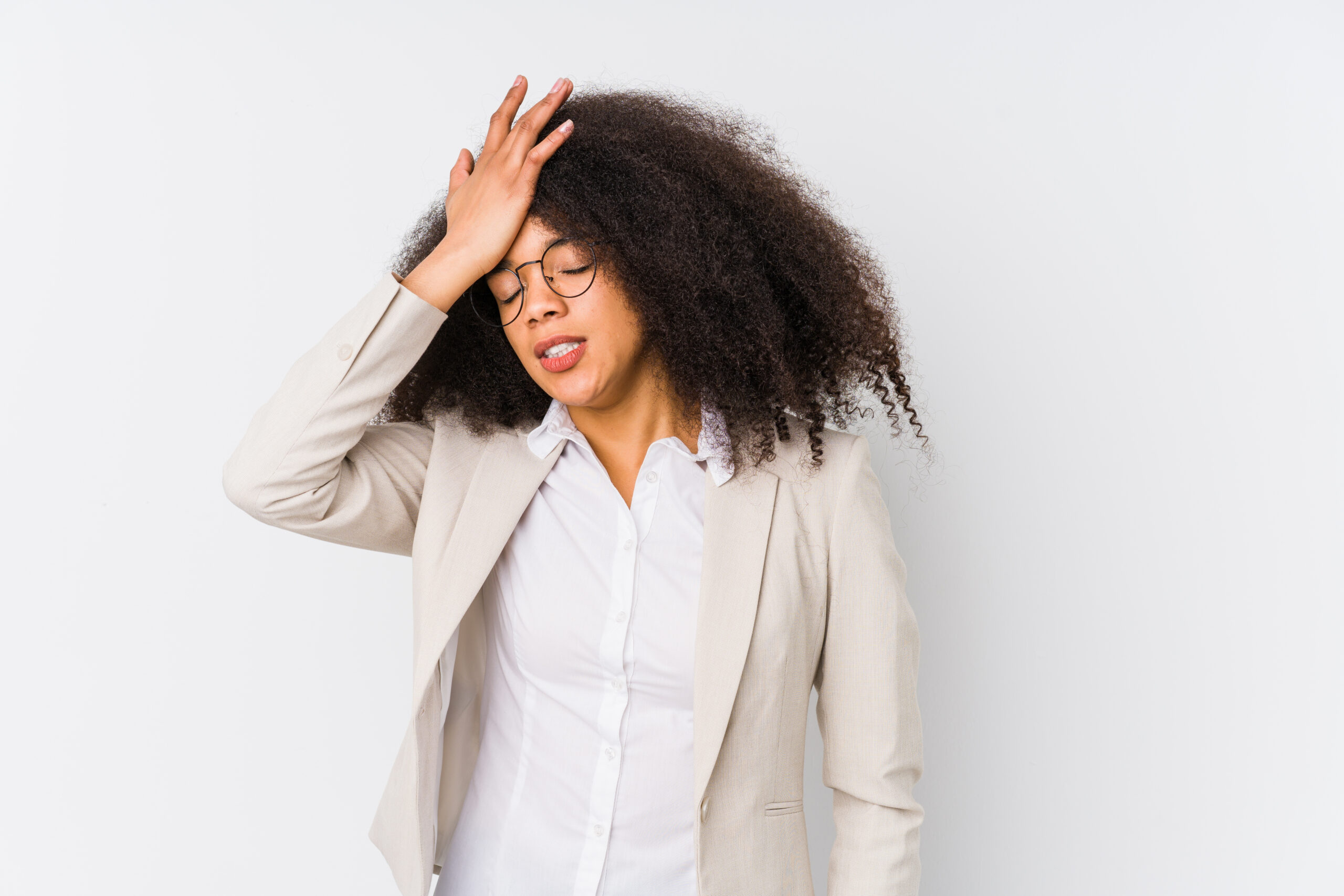
- Keep organized. Use a calendar or notebook to write things down. You can also download apps on your phone to help you remember appointments, names, and things that you need to do.
- Keep your keys, glasses, and phone in the same place so you don’t forget where you put them.
- Use reminder alarms on your phone or watch to help you remember when to take your medication.
- Use sticky notes to remind you to do important things like turning off the stove or locking the door.
- Ask others to slow down or repeat things if you can’t follow what they are saying.
- Read out loud to help you concentrate and help the information you’re reading sink in.
- Work in a quiet area if you need to do work, study, or read.
- Take breaks to reduce mental fatigue. This will give you more energy to re-focus and concentrate.
- Break down large tasks or lots of information down into smaller chunks or pieces.
- Avoid multitasking. You are better able to concentrate when you are doing one thing at a time.
Mood Changes
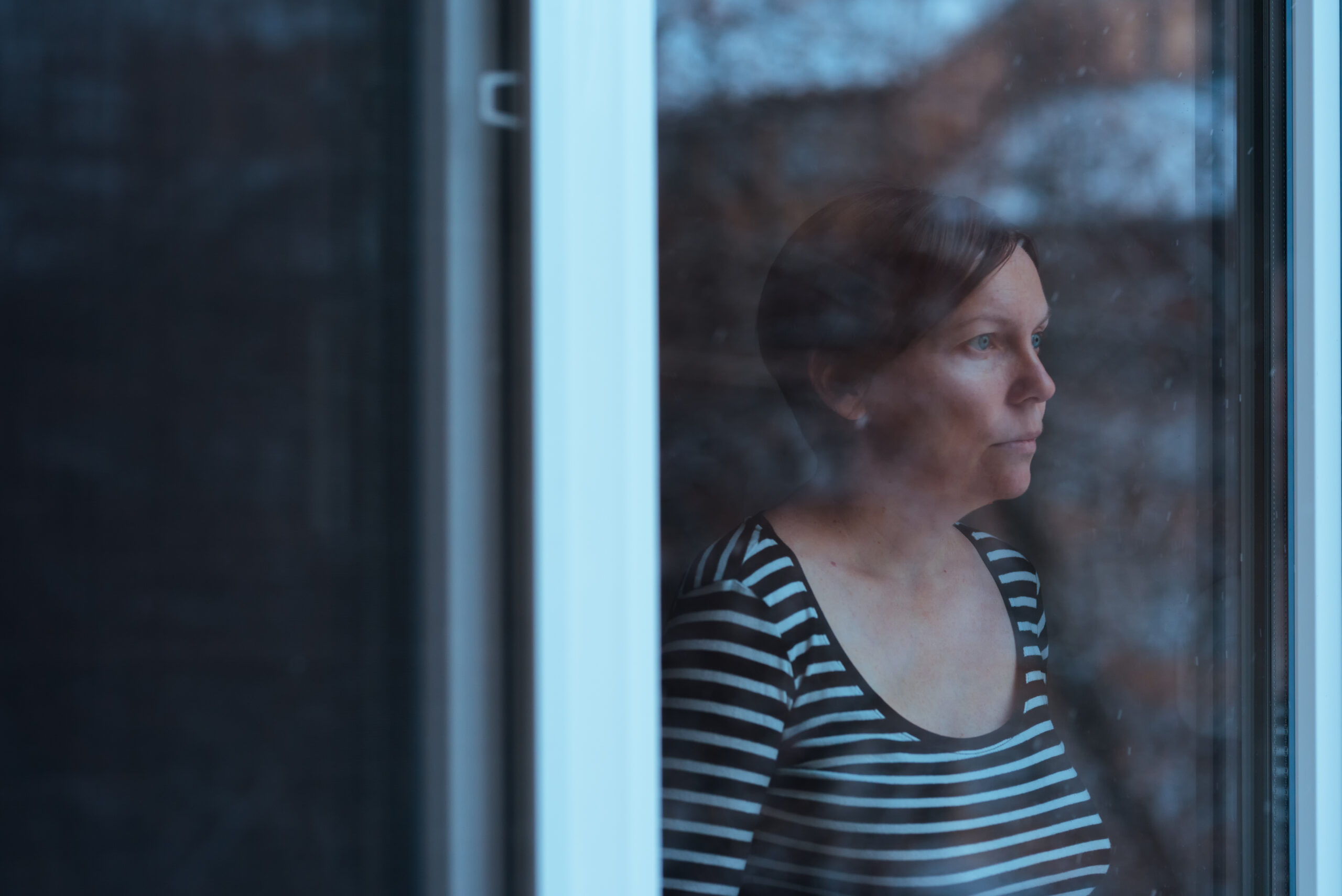
- Stick to a daily routine with a consistent sleep-wake schedule. Eat well and get enough sleep.
- Make a daily To-Do List and check things off your list as you finish them. Looking at your list will remind you about all the things you have accomplished, which can help you feel better.
- Keep an activity log to track your activity levels and mood to determine patterns and triggers.
- Talk to your family, close friends, or a healthcare professional about your feelings.
- Do things that you enjoy like going for a walk, calling a friend, listening to music, etc.
- If you feel overwhelmed, prioritize the most important things that you need to get done and tackle these tasks first. It’s okay to do less or complete the tasks that are not as important at a later time.
- Try to stay positive. How you think can affect your mood and physical wellbeing.
- Try mindfulness meditation to help you cope with stress and help you relax, focus, and improve your sleep. There are many free mindfulness apps available, such as Headspace and Calm.
- Do gentle stretches, yoga, or Tai Chi. Check with your doctor before starting any new exercises.
- Do deep breathing and relaxation exercises to help reduce stress and anxiety.
Sleep Disturbances
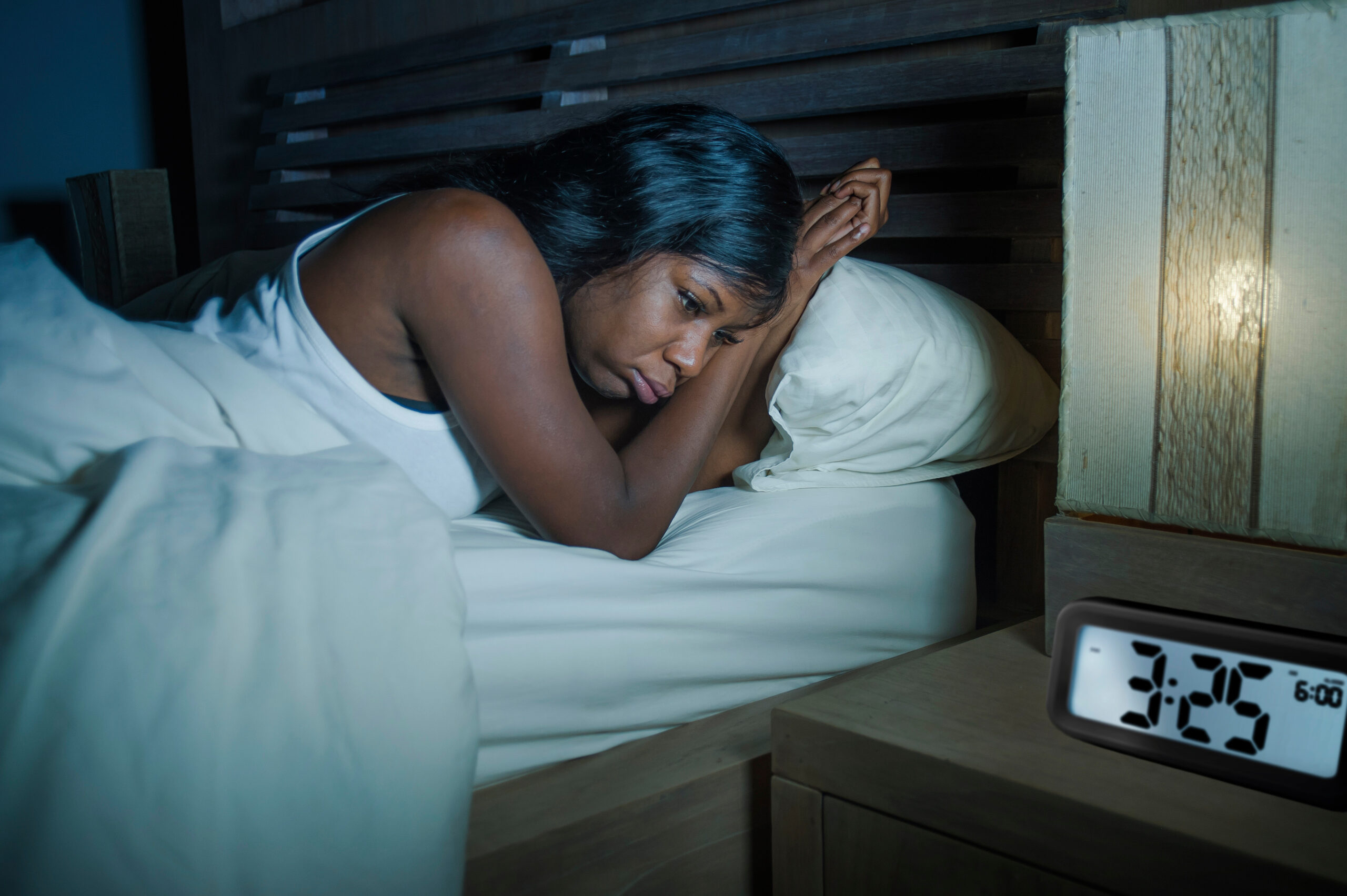
- Keep a regular sleep routine. Go to bed and wake up at around the same time every day, even on weekends. Set an alarm if you need to.
- Try not to nap during the day or keep naps very short (20-30 mins), otherwise you may have difficulty falling asleep at night.
- Do something relaxing before you go to bed. A warm bath or reading a book may help you fall asleep. You can also listen to soothing music or try deep breathing exercises.
- Do not drink caffeine or alcohol or eat heavy meals 4-6 hours before bed. Doing so may make it harder to fall asleep or wake you up in the middle of the night.
- Try to exercise 30-60 minutes a day if you can, but don’t exercise right before bed. Talk to your doctor before starting to exercise.
- Get enough natural light during the day. While indoors, keep the blinds open during the day.
- Keep electronics out of the bedroom. Watching TV or using your cellphone before bed can make it difficult to fall asleep because the light from the screen makes your brain work harder than usual.
- Avoid doing waking activities in bed, such as eating, watching TV, or using the computer.
References
Brain Injury Canada. Concussion. Retrieved 14 October 2020, from https://www.braininjurycanada.ca/concussion/
Bullock, G. (2019). 6 Tips for Concussion and Post-Concussion Syndrome Recovery. Retrieved 14 October 2020, from https://www.theraspecs.com/blog/concussion-post-concussion-syndrome-recovery-tips/
Chong, C. (2008). Management Strategies for Post-Concussion Syndrome After Mild Head Injury: A Systematic Review. Hong Kong Journal of Occupational Therapy, 18(2), 59-67.
Evans, R. Postconcussion syndrome. Retrieved 14 October 2020, from https://www.uptodate.com/contents/postconcussion-syndrome
Neurosymptoms.org. Post-Concussion Syndrome. Retrieved 14 October 2020, from https://www.neurosymptoms.org/post-concussion-syndrome/4594358012
Smyres, K. (2015). What light bulbs are best for someone who is sensitive to light?. Retrieved 14 October 2020, from https://www.theraspecs.com/blog/light-bulbs-best-someone-sensitive-light/
Sunnybrook Hospital. Concussion recovery tips. Retrieved 14 October 2020, from https://sunnybrook.ca/content/?page=bsp-concussion-recovery-tips

